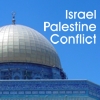 |
Witnessing the Truth of Gaza
The U.S. delegation included people of Muslim, Jewish and Christian faith, journalists, young adults, and former Christian Peacemaker Team workers, and International Solidarity Movement (ISM) workers. They had different connections to the Middle East, but all wanted to witness first hand what was happening in Gaza, show their solidarity with the oppressed Palestinian people and bring support and supplies for the traumatized children of Gaza.
On May 23rd, Ceil was with the group who left the United States and entered the Gaza Strip through the Egyptian border at Rafah. Just getting over the border was difficult. Each individual in a delegation must be approved by the Egyptian government and many are turned away. The group visited the Children’s Life Center in Rafah. Farming and fishing are two of the main sources of work in Gaza
and a primary source of food for the Palestinians. These
have become even more essential during the blockade, as food and
supplies are scarce, as are medicine and medical equipment, building
construction supplies, electicity, fuel and clean water. Although
some supplies are smuggled in through tunnels that connect to Egypt,
they are limited and very expensive and apparently taxed by the
elected government, Hamas. The delegation went to the area of Gaza City, where they witnessed more of the same destruction they had seen in Rafah. They spoke with Majd Abdullah who held up a live mine left at the site of his destroyed home. He had been a taxi driver and used to support his extended family with the income he raised. After his cabs were destroyed, he lost hope. One delegation member asked him why he held a live mine and he replied, “What’s the difference?”
For more information, contact John Ging at UNRWA, the United Nations Relief and Work Agency for Palestine Refugees in the Near East is a relief and human development agency, providing education, healthcare, social services and emergency aid to over 4.6 million refugees living in the Gaza Strip, the West Bank, Jordan, Lebanon and the Syrian Arab Republic. Contact CODEPINK if
you are interested in being part of a future delegation. |
Related Links: UNRWA, the United Nations Relief and Work Agency for Palestine Refugees in the Near East CodePink: Women for Peace Dominican Sisters of Blauvelt, NY United Nations News Center on the Middle East Israel and the Occupied Territories: The place of the fence/wall in international law (Amnesty International) A good source: Understanding the Palestinian-Israeli Conflict, by Phyllis Bennis |
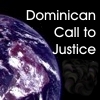

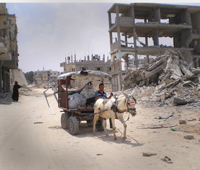 BLAUVELT, NY – July 10, 2009 -- Sister Ceil Lavan, OP (Blauvelt)
was part of a 13-member delegation that traveled to the Gaza Strip. Ten
days and many experiences later, she and the other members of the
delegation sponsored by
BLAUVELT, NY – July 10, 2009 -- Sister Ceil Lavan, OP (Blauvelt)
was part of a 13-member delegation that traveled to the Gaza Strip. Ten
days and many experiences later, she and the other members of the
delegation sponsored by 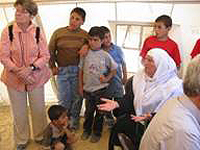
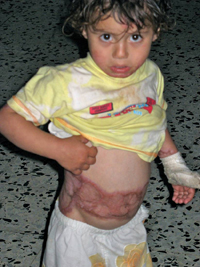 They also encountered Farah, a little girl whose home was hit
with a white phosphorous bomb. Most of her family members, including
her mother, were killed by the recent Israeli attack. Farah was
severely burned by white phosphorous. The delegation saw a remnant
of white phospherous on the ground at a home they visited. When
a man rubbed it with a stick on the ground, it ignited! The white
phosphorous had been there since the Dec/Jan atack and it was still
burning.
They also encountered Farah, a little girl whose home was hit
with a white phosphorous bomb. Most of her family members, including
her mother, were killed by the recent Israeli attack. Farah was
severely burned by white phosphorous. The delegation saw a remnant
of white phospherous on the ground at a home they visited. When
a man rubbed it with a stick on the ground, it ignited! The white
phosphorous had been there since the Dec/Jan atack and it was still
burning.